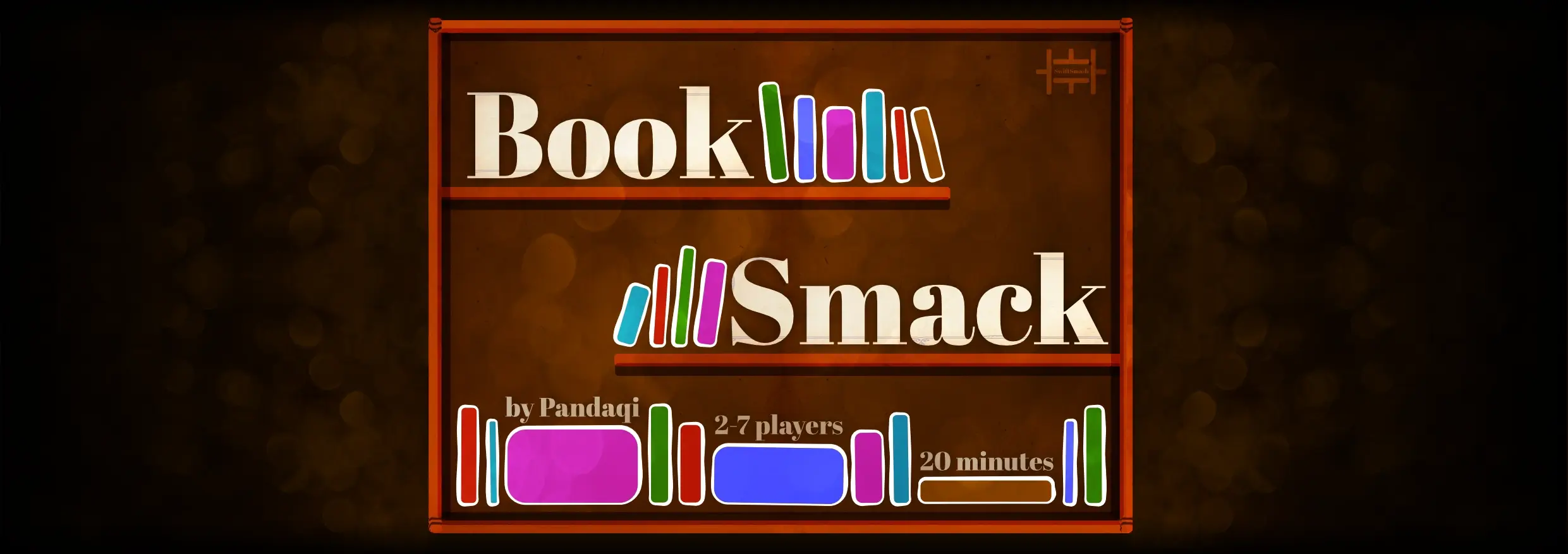Deal everyone 4 cards to take into their hand.
The game ends when everyone is out of (hand) cards. Every card in your Library is worth 1 point. Highest score wins!
Gameplay happens in rounds. There are no turns: everyone plays at the same time.
- Everyone picks a secret card from their hand and places it in front of them.
- Once done, everyone reveals their cards at the same time.
The first player to tap the highest letter (in order of the alphabet) wins the round!

But there are two twists.
- If a letter appears twice (uppercase and lowercase), you must tap the uppercase version.
- If the cards (when read in order) happen to spell a word, don’t tap any card. Instead, tap empty space and say the word out loud to win.
The winner of a round wins all the cards. Place them in your Library, which is just a facedown pile in front of you on the table.
Played the base game and ready for more? Or looking to tweak the game to fit your playing group better? Check out these variants and expansions!
The default version of Booksmack is a fast and loose (party) game. Try this variant instead if you want to play it more slowly and tactically, not relying on quick thinking or reaction time.
Below are the changes for this variant.
Setup: When players aren’t used to this variant, it’s recommended to start with at least 6 cards per player. Otherwise the game can be over very quickly.
Objective: the game ends as soon as a single player is out of cards.
- Your final score is equal to your Library plus the cards left in your hand.
- All special cards (from expansions) score 1 point, as usual.
- Every letter, however, scores its position in the alphabet divided by 5 (and rounded down).
- If you own both the uppercase and lowercase version of a letter, they are worth +2 points each.
- If you own multiple versions of the same lowercase letter (which is possible with the accents expansion), they are worth -2 points each.
Gameplay:
- You play in turns. The cards you play are still placed in a circle, not a single pile (as often happens in card games).
- On your turn, you play a card from your hand, and place it in front of you. (Covering your previous card, if it’s still there.)
- If it’s currently the “highest card” (the one you should “tap”), draw a card from the deck.
- If it’s currently the “lowest card”, steal a card from another player. (Either blindly from their hand, or the latest card they played in front of them.)
- If you spell a word, you win all cards played: they go into your Library.

This expansion adds punctuation cards. Their powers are also written on the cards.

This expansion adds number cards (between 1 and 26; not all included).
To win a round, you must still tap the “highest number”. But now you’ll have to convert letters to numbers, or numbers to letters, to find out which one comes later in the alphabet.
In case of a tie, the number is always higher ranking than the letter.
For example, the number “E” is at position 5 of the alphabet. Any number card of 5 or higher would be ranked higher than it.
This expansion adds more uncommon glyphs and symbols. Their actions are simple and explained on the card. The image below merely clarifies the hardest ones.

This expansion adds letters with diacritics, more commonly known as “accents”.
A letter with a diacritic is always considered “higher” than the same letter without it.
If a letter appears multiple times with a diacritic, tapping any of them will win the round.
This means, on rare occassions, there can be a tie and multiple winners. (If people slammed different winning cards at roughly the same time.) In that case, simply distribute the winning cards over the winners as fairly as possible, discarding any leftovers.
When it comes to spelling words, diacritics do not matter. (Example: The word “cafe” is on the table regardless of whether it’s “café” or “câfe” or any other variant.)
